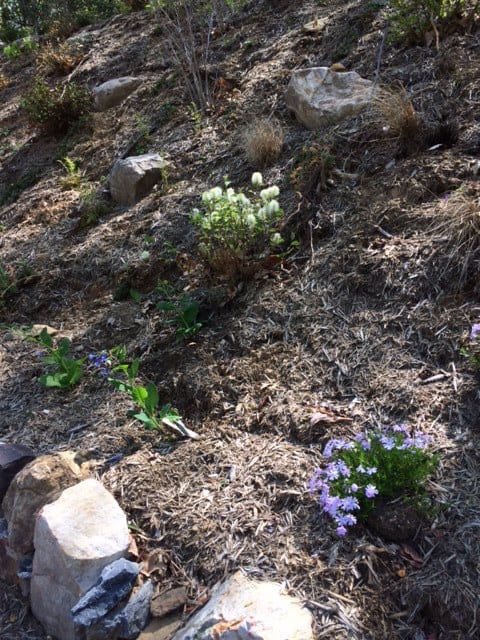 Springtime brings flowers and critters back to Vanaprastha. Keith and I are seeing creeping phlox, bluebells and fothergilla, skinks, tiger swallowtails and hummingbirds.
Springtime brings flowers and critters back to Vanaprastha. Keith and I are seeing creeping phlox, bluebells and fothergilla, skinks, tiger swallowtails and hummingbirds.
But no shrews except Katherina, the Shrew in Shakespeare’s so-named play, which Keith and I saw at Blackfriars Playhouse in Staunton over the weekend. Kate is not so much a shrew as a woman much to be admired. That is, she uses her wit to dissuade those who are faint of heart.
“The Taming of the Shrew is not about feminism,” director Jemma Alix Levy wrote in the liner notes. “It is about love.”
Love: messy human relationships that demand we change ourselves and forgive others.
While watching the play on Saturday night, I remembered a blog post I’d read that morning. The author recounted a painful breakup with her fiancé many years ago. It took her a year to let go of her anger and start the process of forgiving.
“Forgiveness has a way of bringing clarity,” the author wrote. “During that time, I began to discover how I had contributed to the relationship’s demise. I recognized how my resistance to be honest about my faults and limitations had cast him as the needy one and how my fear and inability to fully trust prompted me to manipulate and control. Forgiving him moved me toward greater wholeness. It also freed me from a lifetime of bitterness and resentment.”
Yup, yup, yup, I thought.
Two years after the break up, she and her former fiancé met to talk it out. They’ve been married 27 years.
This year, our Women’s Spring Retreat topic is forgiveness. There’ll be time to listen, time to share, time to think, and time to pray amid the beauty of God’s creation. Flowers and critters will be sighted, including our shrewish selves if we choose to shine a light on our faults and limitations.
At the end of the play, Kate speaks these lines to her younger sister and another bride:
My mind hath been as big as one of yours,
My heart as great, my reason haply more,
To bandy word for word and frown for frown;
But now I see our lances are but straws,
Our strength as weak, our weakness past compare,
That seeming to be most which we indeed least are.
Then vail your stomachs, for it is no boot,
And place your hands below your husband’s foot,
In token of which duty, if he please,
My hand is ready, may it do him ease.
She kneels before her husband Petruchio to hold his foot. He gently lifts her hand. Throughout the taming, he has never allowed her to be humiliated. Both husband and wife are humbled by love.
As are we and should be in loving relationship with our Creator.



0 Comments